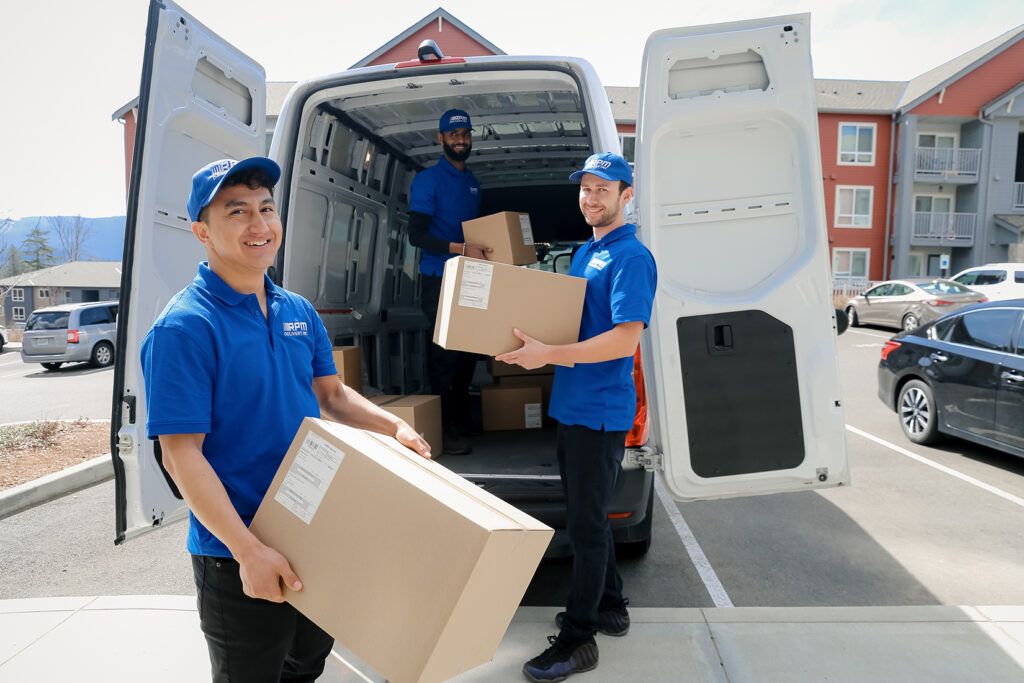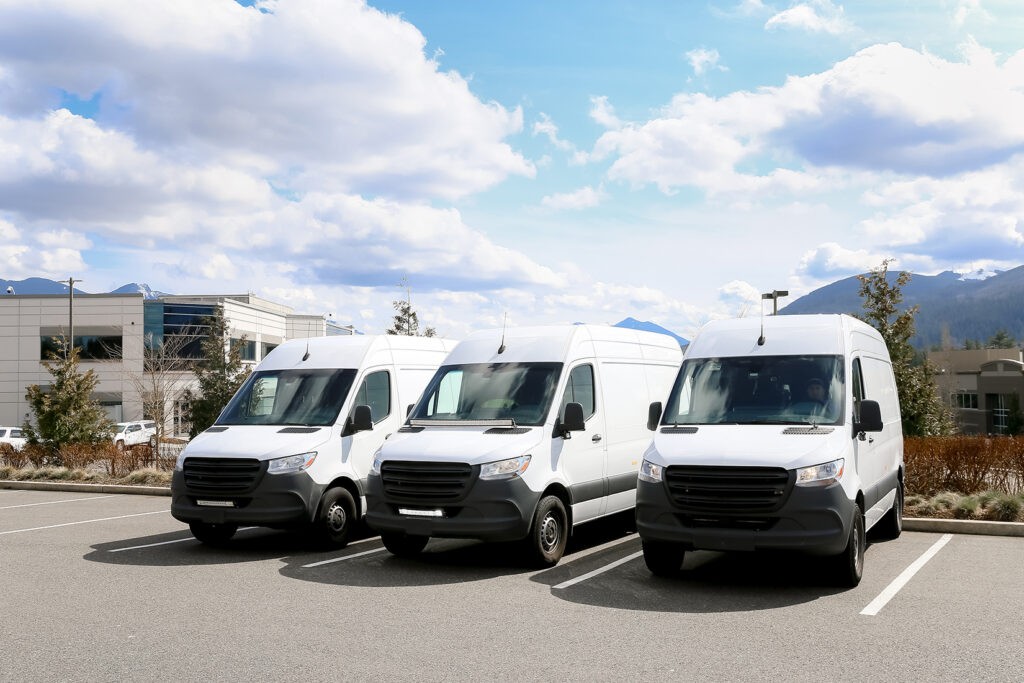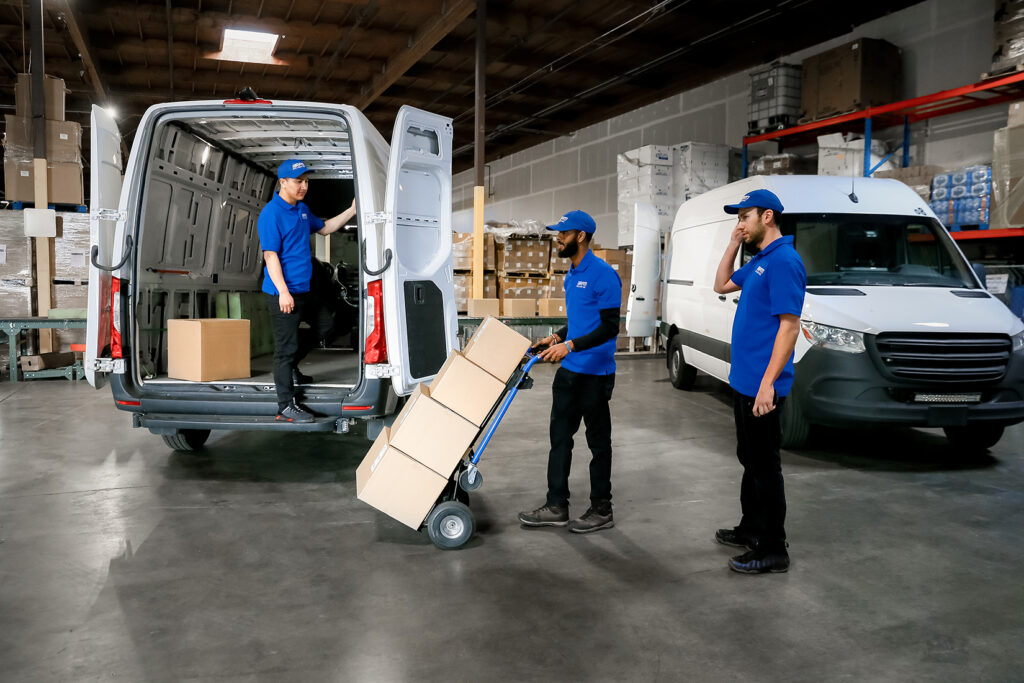The Significance of Streamlined Last-Mile Delivery in Maintaining Customer Loyalty

The final mile of delivery has become a crucial battleground for companies looking to gain and keep customers in the ever-changing retail and e-commerce world. Expectations about last-mile delivery’s speed, dependability, and general efficiency have surged as more and more customers shop online. In this blog, we will explore the complex network of elements that makes efficient last-mile delivery essential to reaching the goal of long-term client loyalty.
Last-Mile Delivery Definition
The term “last-mile delivery” refers to the last phase of the product transportation process. It involves moving goods from a fulfillment or distribution facility to their final location, usually retail or the customer’s doorstep. This stage of the supply chain is crucial as it is the final part of a product’s journey before it reaches the customer.
Focusing on the final, often short transportation distances, last-mile delivery is characterized by its critical role in determining the complete customer experience. Last-mile delivery presents several difficulties and complexities because it must guarantee prompt, dependable, and cost-effective transportation while meeting customers’ changing needs for speed and convenience, particularly in e-commerce and online retail. In today’s quickly changing retail environment, businesses must improve customer satisfaction, foster brand loyalty, and maintain competitiveness through effective last-mile delivery.
Benefits of Effective Last-Mile Delivery
An effective last-mile delivery system is a logistical necessity and a strategic asset that positively impacts customer relationships, operational efficiency, and overall business success. These are the key benefits:
- Customer satisfaction. Timely and reliable deliveries increase customer satisfaction, meeting or exceeding expectations. Enhanced customer experience leads to positive reviews, increased brand loyalty, and repeat business.
- Competitive advantage. Businesses with efficient last-mile delivery gain a competitive edge by meeting the growing demand for faster and more convenient services. Swift and reliable deliveries can set a company apart in a crowded market.
- Reduced operational costs. Optimized routes and delivery schedules can lead to fuel, labor, and vehicle maintenance cost savings. Efficient last-mile logistics contribute to overall supply chain cost-effectiveness.
- Increased efficiency. Automation and technology-driven solutions improve efficiency in sorting, routing, and tracking packages, reducing delivery times. Streamlined operations enhance productivity and reduce the likelihood of errors.
- Convenience and flexibility. Offering flexible delivery options, such as time slots, alternative pickup locations, or same-day delivery, caters to diverse customer preferences. Convenience-driven services contribute to customer loyalty and positive brand perception.
- Real-time tracking. Advanced tracking systems provide real-time visibility into the location and status of deliveries. Customers appreciate transparency, and it reduces inquiries related to delivery status.
- Adaptability to urban areas. Innovative solutions, such as crowd-shipping and alternative transportation modes, help navigate challenges associated with urban congestion and limited parking. Adapting to urban complexities ensures reliable deliveries in densely populated areas.
- Quick inventory turnaround. Efficient last-mile logistics enable faster inventory turnover, reducing holding costs and minimizing the risk of stockouts. Swift deliveries contribute to a responsive and agile supply chain.
- Positive brand image. Reliable and customer-centric last-mile delivery fosters a positive brand image, influencing how consumers perceive and trust a company. Word-of-mouth recommendations and positive online reviews contribute to brand reputation.

How to Navigate Through Obstacles in Last-Mile Delivery
Managing obstacles in last-mile delivery requires a calculated strategy to get beyond various difficulties in the supply chain’s final stage. One major obstacle is the growing e-commerce-driven demand for quicker deliveries. Meticulous planning and operational efficiency are necessary to meet consumer expectations for same-day or next-day deliveries. Businesses frequently struggle to strike a balance between cost-effectiveness and speed because expedited services can put a burden on resources and raise delivery costs. To overcome these obstacles, businesses must implement cutting-edge route optimization technology, real-time tracking systems, and data analytics. By doing so, they can enhance overall service quality, expedite deliveries, and streamline operations.
Another significant barrier to last-mile logistics is urban congestion. One must contend with complicated delivery routes, scarce parking places, and traffic jams in heavily populated urban regions. Innovative approaches like crowd-shipping services and other forms of mobility (such as electric bikes or drones) are being investigated to overcome these obstacles. More effective last-mile operations can also be achieved by working with local government agencies to design delivery-friendly urban infrastructure and by putting in place time-sensitive delivery windows. Businesses may increase consumer happiness, guarantee delivery dependability, and fortify their position as market leaders by proactively tackling issues related to urban surroundings.
The Role of Technology in Last-mile Delivery
Technology plays a critical role in last-mile delivery, transforming the accuracy and efficiency of the last link in the supply chain. Delivery operations can be greatly improved by utilizing cutting-edge technologies like data analytics, real-time tracking systems, and route optimization algorithms. By cutting delivery times and fuel consumption, route optimization ensures that delivery routes are optimized for efficiency. Real-time tracking solutions promote openness and confidence by giving clients access to the whereabouts and status of their items.
Businesses can also estimate demand, evaluate past delivery data, and make data-driven decisions to enhance overall delivery performance by integrating data analytics. Emerging technologies like drones and driverless cars are also being investigated to further automate and speed up last-mile deliveries. It illustrates the revolutionary effect that technology continues to have on contemporary logistics and customer satisfaction.

Transparent Tracking and Proactive Customer Engagement
Positive customer experiences are largely shaped by proactive customer engagement and transparent tracking, both essential elements of a successful last-mile delivery strategy. Customers who use transparent tracking can see the location and status of their deliveries in real-time. This degree of openness builds trust and satisfies consumers’ ever-increasing expectations for accurate and timely information. Customers value being updated on the status of their orders, and user-friendly tracking solutions ease the anxiety associated with unknowns like parcel locations or delivery delays. This openness greatly increases customer satisfaction and is essential for fostering brand confidence.
By keeping consumers informed and involved at every stage of the process, proactive customer engagement further improves the last-mile delivery experience. Businesses that demonstrate a customer-centric strategy are those that communicate with customers effectively, giving timely updates on delivery timeframes, possible delays, or interactive delivery options. In addition to addressing problems before they arise, proactive engagement enables businesses to adjust to changing conditions, such as bad weather or unforeseen logistical difficulties. Proactive businesses not only satisfy customers but also have the chance to transform possible problems into productive exchanges that deepen the relationship between the consumer and the brand.
In Conclusion
As businesses navigate the ever-evolving landscape of last-mile delivery, the significance of a streamlined and customer-centric approach cannot be overstated. RPM Delivery stands out as a beacon of excellence in providing tailored last-mile delivery services that address the intricate challenges associated with this crucial phase of the supply chain. With a commitment to efficiency, transparency, and technological innovation, RPM Delivery not only meets but exceeds customer expectations, laying the foundation for enduring customer loyalty.
In the competitive landscape of e-commerce and retail, where customer satisfaction is critical, companies need to pick their last-mile delivery partners wisely. RPM Delivery stands out as a dependable and strategic partner for companies looking to improve their delivery operations because of our commitment to route optimization, use of state-of-the-art tracking technology, and proactive client involvement. When you entrust RPM Delivery with your last-mile logistics, you’re investing in a comprehensive solution that prioritizes customer experience, drives operational excellence, and ultimately elevates your brand to new heights—not just an outsourcing of a service. Choose RPM Delivery and embark on a journey where each delivery is not just a transaction but a building block in the foundation of lasting customer loyalty and business success.